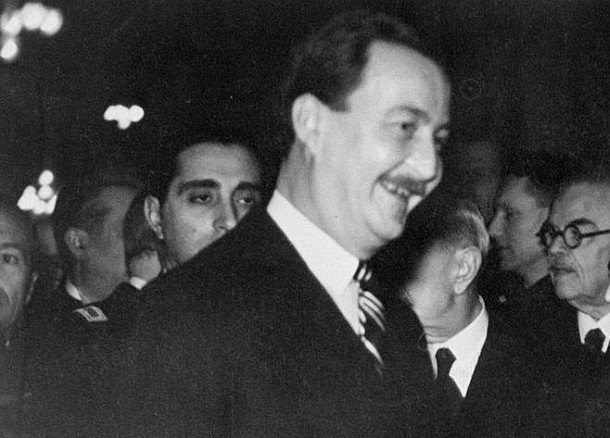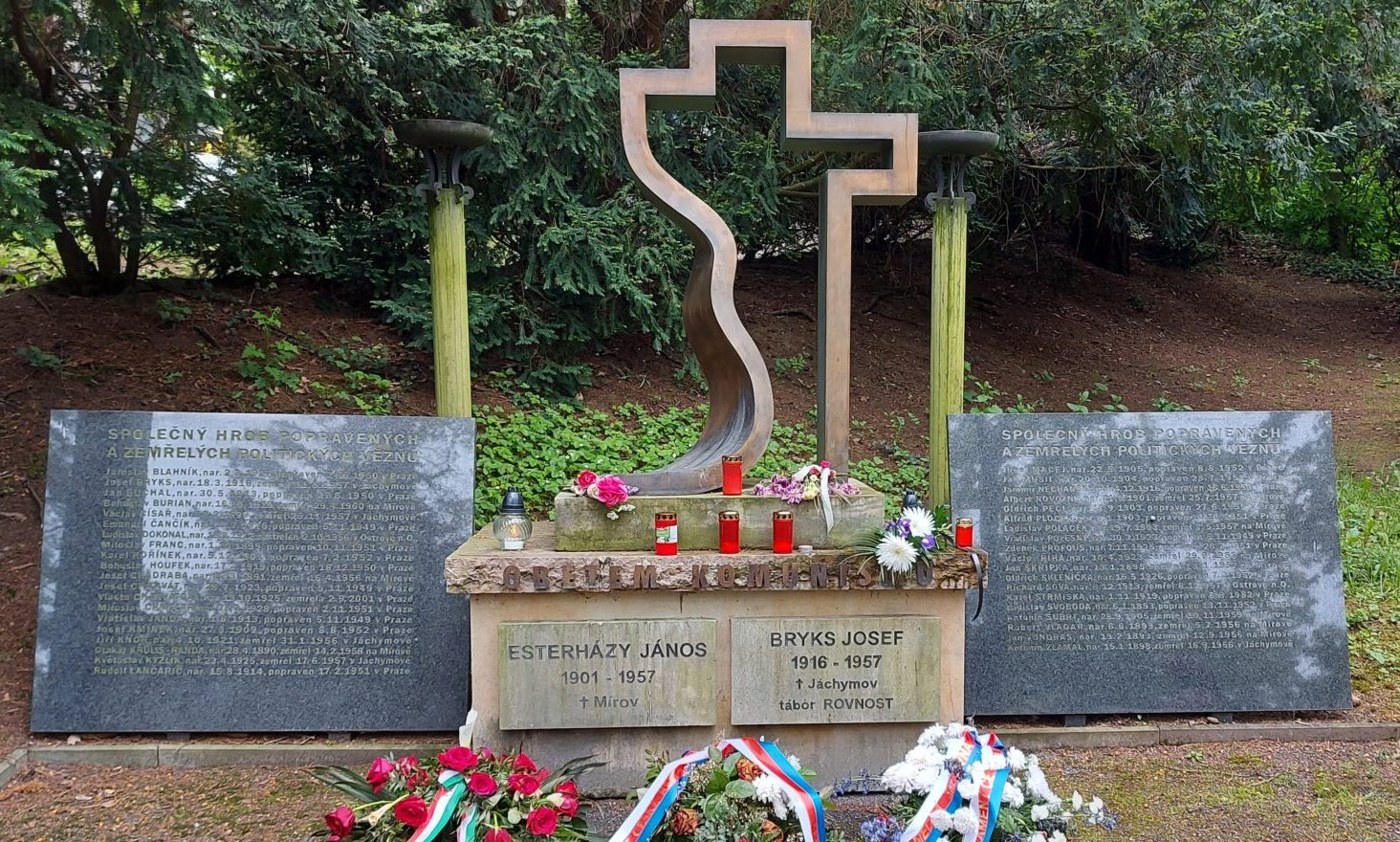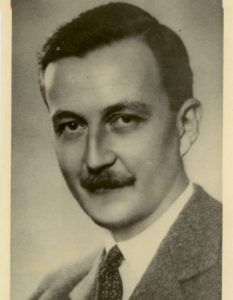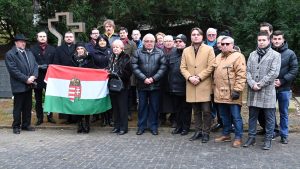
Count János Esterházy, the sole Hungarian deputy in the Slovak Parliament before 1945, was a firm advocate of the ethnic Hungarian community, raising his voice against any violation of minority rights and against discrimination.Continue reading

János Esterházy, the former political leader of the Hungarian minority in Slovakia, was remembered in the Czech capital, Prague on Saturday.
The commemoration, held at the memorial to the victims of the communist regime in the Motol cemetery, was organised by the János Esterházy Association for Christian and Human Values in Prague, the János Esterházy Memorial Committee of the Coexistentia political movement and the Hungarian Catholic Parish in Prague to mark the 66th anniversary of the tragic death of the politician.
Representatives of Hungarian organizations in the Czech Republic and the Hungarian Embassy in Prague laid wreaths and flowers at the memorial plaque of János Esterházy. The speeches at the commemoration ceremony were unanimous in their praise of the life and work of János Esterházy. Panni Szakács, the new President of the János Esterházy Society, opened the ceremony with a poem by Albert Wass, while at the end of the commemoration, the few dozen participants sang the Hungarian national anthem together.

File Photo of János Esterházy
In October 1944 he protested against the occupation of Hungary by Nazi Germany, and was promptly detained by the Gestapo. After the war he was again re-arrested by Czechoslovak authorities in 1945 under the charge of war crimes, who turned him over to Soviet military authorities. In 1947 he was sentenced to 10 years in Moscow, and was deported to a Gulag forced labor camp. However, in 1949 he was returned to Czechoslovakia by the Soviet authorities, where he was handed a life-sentence for alleged collaboration with the fascists regime.
According to Karel Schwarzenberg, Chairman of the Foreign Affairs Committee of the Czech Chamber of Deputies, Esterházy had to be condemned after World War II because he was a “witness” to the earlier political actions of figures who held important posts in communist Czechoslovakia after the war. “Esterházy was their guilty conscience,” said the Czech politician.
Count Esterházy died in Moravia’s Mirov prison in March 1957, and was buried in a mass grave. His ashes were identified in 2007 in Prague’s Motol cemetery.

Facebook: Gubík László
The memorial site was established by the Confederation of Political Prisoners in the Czech Republic after the regime change in 1989 in the Motol cemetery, where dozens of victims of the former political regime were buried anonymously in the 1960s. The urn of János Esterházy was placed in the then anonymous mass grave in the early 1960s.
The central memorial in Motol bears the names of two of the victims: former war pilot Josef Bryx, who represents those who died in the labor camps, and János Esterházy, who represents political prisoners who died in communist prisons.
Featured Photos: Facebook